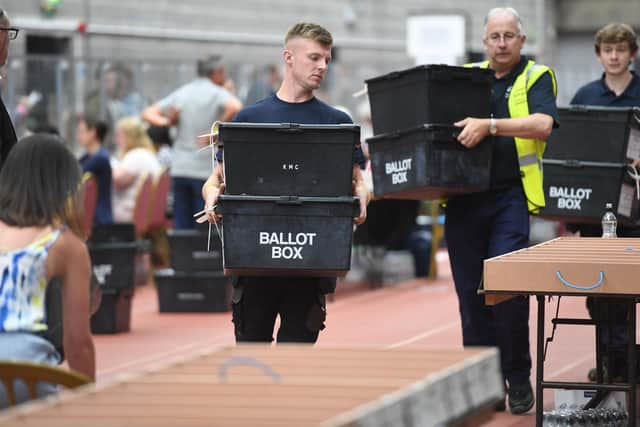The 150th anniversary of the first ever secret ballot is a reminder of our civic rights - Yvette Cooper
The 1872 Pontefract by-election was a turning point in protecting citizens against the power and political abuse of elites. Whilst it would be decades before everyone had the right to vote, the story of that first secret ballot and the fierce campaigning in Pontefract that surrounded it is an important reminder of how hard generations before us fought for basic civic rights, and how much we still need to defend them today.
Previously in elections, those men who were permitted to vote did so by a public show of hands, and powerful landowners used intimidation, threats and pressure to force others to vote the way they wanted. No one even pretended that elections were free or fair. Voting the “wrong way” could mean you lost your livelihood or your home.
Advertisement
Hide AdAdvertisement
Hide Ad1872 was a turning point. It meant for the first time those who were allowed to vote could make their choice in private without fear or favour - a vital democratic principle that has been championed in Parliamentary and local elections ever since. Pontefract Civic Society has charted the details of what happened. Voters marked their cross on a piece of paper, then the ballot boxes were sealed with wax and a Liquorice stamp from Frank Dunhill’s Pontefract factory to ensure votes could not be tampered with until they were counted in Pontefract Town Hall.


Of course we were still a long way from full democracy. Only 320 men were actually allowed to vote. Most Pontefract residents – all women and most working men - were completely disenfranchised and had no say in who their MP should be. Nor did the intimidation and threats stop, even though the ballot was secret.
Although women couldn’t vote or stand for election, that didn’t stop them speaking out. Josephine Butler, a Victorian campaigner, suffragist and social reformer, used the by-election to argue for the abolition of the oppressive “steel rape” law which allowed women to be forcibly examined and locked up if they were suffering from sexually transmitted infections. The lead by-election candidate Hugh Childers supported the law, but Butler was appalled at the way it was used to control women while the men spreading infection were ignored. So she toured the area challenging Childers to debate.
Childers’ supporters responded by trying to silence her. They set fire to the Knottingley building Butler was speaking in so she had to escape for her life through a window – a chilling case of powerful men still using violence and intimidation for political gain.
Advertisement
Hide AdAdvertisement
Hide AdBut Butler’s refusal to give in shows how hard campaigners fought for the basic rights we take for granted now. Despite the threats to her life, she kept campaigning and the steel rape law was finally repealed fifteen years later. It took another fifty six years of determined suffrage campaigning to ensure that all women and men in Pontefract and across the country would finally get the vote on equal terms.
That first secret ballot was a vital step, and without it our elections today would be neither free nor fair. But Butler’s campaigning and those Pontefract events also show how hard generations of women and men had to fight for equal rights and for the basic belief that political power should lie not with elites but with all of the people.
That is why we must not take those hard won civic rights for granted now - especially when some are at risk of being reversed. The Government is insisting that by next year’s local elections voters will have to produce photo ID at the polling station, even though three million people don’t have any, especially pensioners, young people and those on low incomes who can’t afford a passport.
If it goes ahead, it will be the first time our democracy has gone substantially backwards in those hundred and fifty years since the Pontefract by election – shamefully making it harder for those with least power to be able to vote.
Advertisement
Hide AdAdvertisement
Hide AdAs I listened at the end of the school summer term to eleven year olds in De Lacy school in Pontefract holding their own passionate and well-argued debates and votes in the school hall, I thought those Victorian campaigners a century and a half ago would have been proud of their descendants still pursuing the spirit of democracy today. But they would also have warned us about the importance of defending the democratic values.
Yvette Cooper is Shadow Home Secretary and Labour MP for Normanton, Pontefract and Castleford.